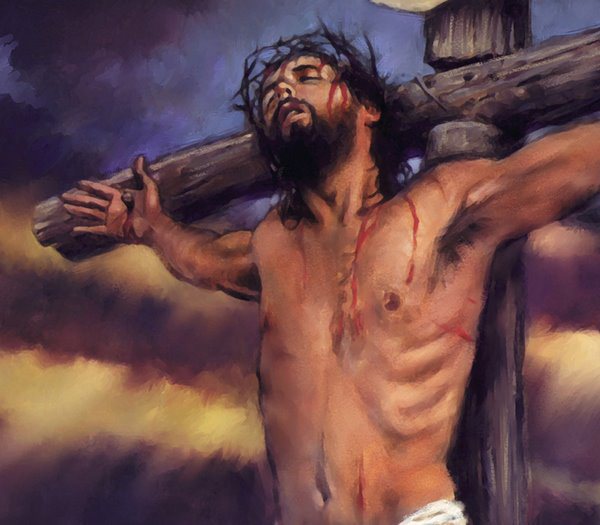

Purple
Purple

Can you smell them?


Purple
Keep Looking Up!
“Looking unto Jesus the author and finisher of our faith; who for the joy that was set before him endured the cross, despising the shame, and is set down at the right hand of the throne of God.”
Hebrews 12:2.
“Several years ago, while journeying from Christiania, Norway, to Goteborg, Sweden, I was favored with the sight of the most glorious sunset it was ever my privilege to behold. Language is inadequate to picture its beauty. The last beams of the setting sun, silver and gold, purple, amber, and crimson, shed their glories athwart the sky, growing brighter and brighter, rising higher and higher in the heavens, until it seemed that the gates of the city of God had been left ajar, and gleams of the inner glory were flashing through. For two hours the wondrous splendor continued to light up the cold northern sky--a picture painted by the great Master Artist upon the shifting canvas of the heavens. Like the smile of God it seemed, above all earthly homes, above the rock-bound plains, the rugged mountains, the lonely forests, through which our journey lay.
Angels of mercy seemed whispering: "Look up! This glory is but a gleam of the light, which flows from the throne of God. Live not for earth alone. Look up, and behold by faith the mansions of the heavenly home." This scene was to me as the bow of promise to Noah, enabling me to grasp the assurance of God's unfailing care, and to look forward to the haven of rest awaiting the faithful worker. . . .
As God's children, it is our privilege ever to look up, keeping the eye of faith fixed on Christ. As we constantly keep Him in view, the sunshine of His presence floods the chambers of the mind. The light of Christ in the soul-temple brings peace. The soul is stayed on God. All perplexities and anxieties are committed to Jesus. As we continue to behold Him, His image becomes engraved on the heart, and is revealed in the daily life. . . .
My dear young friends, ever keep Christ in view. Thus only can you keep the eye single to God's glory. Jesus is your light and life and peace and assurance forever.
FLB 248
---------------
Temple Service Ended At Death Of Christ
“And, behold, the veil of the temple was rent in twain from the top to the bottom; and the earth did quake, and the rocks rent.”
Matthew 27:51.
“The next day the courts of the Temple were filled with worshipers. . . . But never had the service been performed with such conflicting feelings. The trumpets and musical instruments and the voices of the singers were as loud and clear as usual, but a sense of strangeness pervaded everything. One after another inquired about the strange event that had taken place. Hitherto the Most Holy Place had always been most sacredly guarded from intrusion. . . .
Only once a year was it entered, and then by the high priest. But now a curious horror was seen on many countenances, for this apartment was open to all eyes. At the very moment that Christ had expired, the heavy veil of tapestry, made of pure linen, and beautifully wrought with scarlet and purple, had been rent from top to bottom. The place where Jehovah had met with the priest, to communicate His glory, the place that had been God’s sacred audience chamber, lay open to every eye—a place no longer recognized by the Lord.
Many who at that time united in the services of the Passover never again took part in them. Light was to shine into their hearts. The disciples were to communicate to them the knowledge that the great Teacher had come.
According to their practice, the people brought their sick and suffering to the Temple courts, inquiring, Who can tell us of Jesus of Nazareth, the Healer? Some had come from far to see and hear Him. . . . They would not be turned away. But they were driven from the Temple courts, and the people of Jerusalem could not fail to see the contrast between this scene and the scenes of Christ’s life.
On every side was heard the cry “We want Christ, the Healer.” A world without a Christ was blackness and darkness, not only to the disciples and to the sick and suffering, but to the priests and rulers. The Jewish leaders and even the Roman authorities found it harder to deal with a dead Christ than with a living Christ. The people learned that Jesus had been put to death by the priests. Inquiries were made regarding His death. The particulars of His trial were kept as private as possible, but during the time that He was in the grave, His name was on thousands of lips, and reports of His mock trial and of the inhumanity of the priests and rulers were circulated everywhere.—Manuscript 111, 1897 (Manuscript Releases, vol. 12, pp. 417-419).
CTr 281
----------------------------------
The great rebel was uprooted from the thoughts of everyone as they saw Christ’s resurrection; the question was settled that the law of God was immutable and covered all that were in heaven and in earth, and all the created intelligences. Christ was with His disciples forty days and forty nights and then . . . He was taken up from them into heaven; and the multitude of captives were with Him; and a multitude of heavenly host was around Him; and as they approached the city of God, the angel that was accompanying Him said, “Lift up your heads, O ye gates; and be ye lifted up, ye everlasting doors; and the King of glory shall come in.”
Now this Saviour is our intercessor, making an atonement for us before the Father. . . And that precious Saviour is coming again. . . . When He cometh the second time, it is not to wear the crown of thorns, it is not to have that old purple robe placed upon His divine form. The voices will not be raised, Crucify Him, Crucify Him, but there is a shout from the angelic host and from those who are waiting to receive Him, Worthy, Worthy is the Lamb that was slain. A divine Conqueror, in the place of the crown of thorns He will wear a crown of glory; in the place of that old kingly robe that they put upon Him in mockery, He will wear a robe whiter than the whitest white. And those hands that were bruised with the cruel nails will shine like gold. . . .
The righteous dead come forth from their graves, and they that are alive and remain are caught up together with them to meet the Lord in the air, and so shall they ever be with the Lord. And they will listen to the voice of Jesus, sweeter than any music that ever fell on mortal ear, . . . “Come, ye blessed of my Father, inherit the kingdom prepared for you from the foundation of the world.”
Manuscript 11, 1886.
CTr 288
-----------------------
Eden
“And the Lord God took the man, and put him into the Garden of Eden to dress it and to keep it.”
Genesis 2:15.
Although everything God had made was in the perfection of beauty, and there seemed nothing wanting upon the earth, which God had created to make Adam and Eve happy, yet He manifested His great love to them by planting a garden especially for them. A portion of their time was to be occupied in the happy employment of dressing the garden, and a portion in receiving the visits of angels, listening to their instruction, and in happy meditation. Their labor was not wearisome but pleasant and invigorating. This beautiful garden was to be their home.
In this garden the Lord placed trees of every variety for usefulness and beauty. There were trees laden with luxuriant fruit, of rich fragrance, beautiful to the eye, and pleasant to the taste, designed of God to be food for the holy pair. There were the lovely vines, which grew upright, laden with their burden of fruit, unlike anything man has seen since the fall. The fruit was very large and of different colors; some nearly black, some purple, red, pink, and light green. This beautiful and luxuriant growth of fruit upon the branches of the vine was called grapes. They did not trail upon the ground, although not supported by trellises, but the weight of the fruit bowed them down. It was the happy labor of Adam and Eve to form beautiful bowers from the branches of the vine and train them, forming dwellings of nature's beautiful, living trees and foliage, laden with fragrant fruit.
It was the design of God that man should find happiness in the employment of tending the things He had created, and that his wants should be met with the fruits of the trees of the garden. . . .
Had happiness consisted in doing nothing, man, in his state of holy innocence, would have been left unemployed. But He who created man knew what would be for his happiness; and no sooner had He created him than He gave him his appointed work. The promise of future glory, and the decree that man must toil for his daily bread, came from the same throne.”
CC 12
-----------------
Lydia
Acts 16:14, 15, 40
LYDIA WAS A MERCHANT WOMAN FROM THYATIRA WHO TRADED IN EXPENSIVE PURPLE CLOTH. SHE ALSO WAS A WORSHIPER OF GOD AND EXTENDED HER HOSPITALITY TO THE DISCIPLES.
The time had come for the gospel to be proclaimed beyond the confines of Asia Minor. . . . The call was imperative, admitting of no delay. . . . [Said Luke,] "We came with a straight course to Samothracia, and the next day to Neapolis; and from thence to Philippi, which is the chief city of that part of Macedonia, and a colony."
"On the Sabbath," Luke continues, "we went out of the city by a river side, where prayer was wont to be made; and we sat down, and spake unto the women which resorted thither. And a certain woman named Lydia, a seller of purple, of the city of Thyatira, which worshipped God, heard us: whose heart the Lord opened." Lydia received the truth gladly. She and her household were converted and baptized, and she entreated the apostles to make her house their home.
God's Spirit can only enlighten the understanding of those who are willing to be enlightened. We read that God opened the ears of Lydia, so that she attended to the message spoken by Paul. To declare the whole counsel of God and all that was essential for Lydia to receive--this was the part Paul was to act in her conversion; and then the God of all grace exercised His power, leading the soul in the right way. God and the human agent cooperated, and the work was wholly successful.
Acting upon the instruction given by Christ, the apostles would not urge their presence where it was not desired. "They went out of the prison, and entered into the house of Lydia: and when they had seen the brethren, they comforted them, and departed.”
DG 73
The Living Vine.
“During our first visit to California, in early spring, we noticed the husbandmen on every hillside busily engaged about some important plant. Going nearer to see the object of their care, we found it merely a small stub, unsightly, and apparently lifeless. With surprise we learned that the field before us was a vineyard, and that these insignificant plants were the grapevines. One can hardly conceive a more unpromising appearance than was there presented.
In September we again visited a vineyard; and what a change! The wintry stub had shot forth branches, beautiful in their fresh verdure, and laden with rich clusters of purple fruit. As we compared the former barren and lifeless appearance with the verdure and fruitfulness before us, we could but think of those words of the prophet concerning Christ: "He shall grow up before him as a tender plant, and as a root out of a dry ground; he hath no form nor comeliness; and when we shall see him, there is no beauty that we should desire him. He is despised and rejected of men; a man of sorrows, and acquainted with grief; and we hid as it were our faces from him. He was despised, and we esteemed him not." It was thus that the Jewish nation looked upon Jesus.
The Divine Husbandman planted a goodly vine upon the hills of Palestine. But the men of Israel despised this root of heavenly origin. In a rage they cast it over their vineyard wall; they bruised it, and trampled it under their indignant feet, and hoped that they had destroyed it forever. The Husbandman removed the broken vine, and concealed it from their sight. Again he planted it, but in such a manner that the stock was no longer visible. The branches hung over the wall, and grafts might be joined to it, but the stem itself was placed beyond the power of men to reach or harm.
To this world, dark with the shadows of sin, sorrow, and death, came the Son of God with the light of pardon, peace, and immortal life. "As the Father hath life in himself, so hath he given to the Son to have life in himself." But the world hated Christ because his perfect purity was in such contrast to their own vileness. They rejected and crucified the Lord of life. God raised him from the dead, and hid him from mortal view; but he is still the Saviour of mankind. He is still the vine-stock, the source and sustainer of spiritual life. Still may grace, strength, and salvation be derived from his fullness. Though the Vine itself is unseen, its branches are visible. While Christ is removed from human sight, his life and power are manifested in his followers.
Grafts may still be united with the Vine. As the severed branch, leafless, and apparently lifeless, is ingrafted into the living stock, and, fiber by fiber, and vein by vein, drinks in the life and strength of the vine until it buds and blossoms and bears fruit, even so may the sinner, by repentance and faith, connect himself with Christ, become a partaker of the divine nature, and bring forth in words and deeds the fruit of a holy life.
Jesus "has life in himself," and this life he offers to impart freely to souls that are dead in trespasses and sins. Yea, he shares with them his purity, his honor, and exaltation. "Behold, what manner of love the Father hath bestowed upon us that we should be called the sons of God." The sapless branch, ingrafted into the living vine, becomes a part of the vine. It lives while united to the vine. So the Christian lives by virtue of his union with Christ. The sinful and human is linked to the holy and divine.”
RH, September 11, 1883